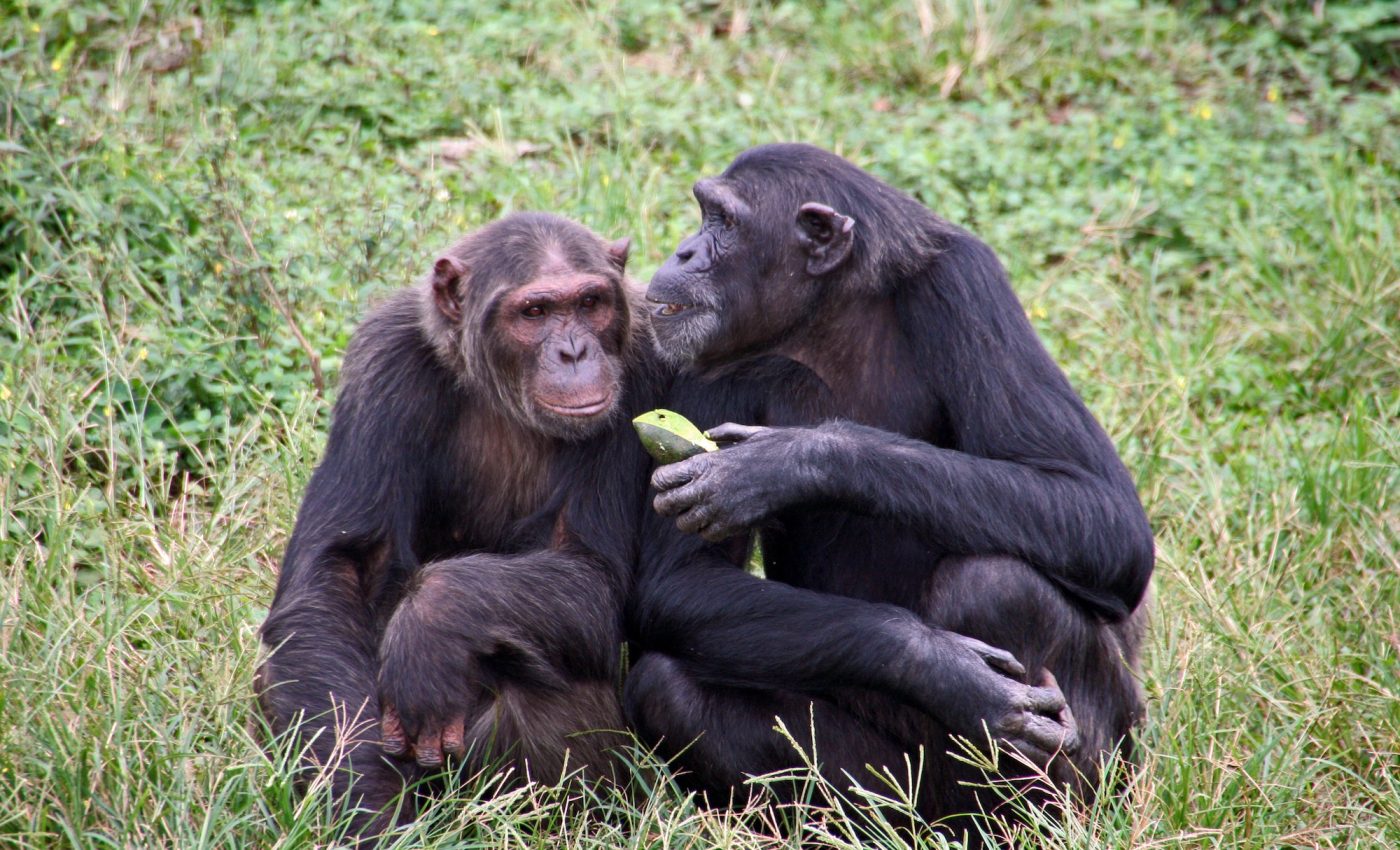
Chimpanzees share alcoholic fruit to increase social bonding
In the forested cliffs of Guinea-Bissau’s Cantanhez National Park, a new discovery may be rewriting what we know about the social lives of our primate cousins. A team of researchers, led by scientists from the University of Exeter, has documented a rare behavior: wild chimpanzees eating and sharing fermented fruit that contains alcohol.
The finding, captured using motion-activated cameras, offers intriguing evidence that chimpanzees may not only consume ethanol naturally found in fruits but do so in a way that strengthens their social bonds. This echoes human traditions of sharing alcohol during communal feasts.
“For humans, we know that drinking alcohol leads to a release of dopamine and endorphins, and resulting feelings of happiness and relaxation,” said lead author Anna Bowland, from the Center for Ecology and Conservation at Exeter’s Penryn Campus in Cornwall.
“We also know that sharing alcohol – including through traditions such as feasting – helps to form and strengthen social bonds. So – now we know that wild chimpanzees are eating and sharing ethanolic fruits – the question is: could they be getting similar benefits?”
Chimpanzee behavior: Caught in the act
The footage showed chimpanzees engaging with large, fibrous African breadfruit that had begun to ferment, naturally developing ethanol levels. Across ten recorded instances, chimps of various ages and sexes were seen actively sharing the fruit, sometimes ignoring larger, unfermented pieces in favor of smaller, fermented ones.
Two adult females, Chip and Até, opted for a ripe, alcoholic piece over a more substantial one. In another case, adult males Mandjambé and Gary approached a breadfruit with aggressive posturing, before Mandjambé laid claim to a piece. Though the initial interactions were tense, others nearby, including Bobby, also joined in and sampled the fruit.
The alcohol content of the fruit, measured at up to 0.61% alcohol by volume (ABV), is relatively low – roughly comparable to a light beer. But as chimpanzees consume large amounts of fruit daily, the cumulative intake could be significant.
“They can feed on kilograms of the stuff every day. It’s probably analogous to us sipping on a light beer,” said senior author Kimberley Hockings, a lecturer at the University of Exeter.
Chimpanzees sharing alcoholic fruit
This isn’t the first time scientists have observed chimpanzees consuming alcohol. In 2015, Hockings and her colleagues published research showing that chimps in West Africa had learned to steal palm sap from human containers – sap that had undergone natural fermentation.
Some chimps even appeared tipsy afterward, delaying nest-building and displaying mischievous behavior. However, in the latest observations, there’s no evidence that the chimps reached a level of inebriation.
The researchers note that becoming visibly drunk would likely impair a wild chimpanzee’s ability to survive, making such behavior evolutionarily disadvantageous. Still, the attraction to fermented fruits raises fascinating questions about cognition, behavior, and the potential benefits of mild alcohol consumption.
“Chimps don’t share food all the time, so this behavior with fermented fruit might be important,” said Hockings.
Fruit feasting traditions
The study explores the idea that our own traditions of communal eating and drinking may have ancient evolutionary roots. The researchers propose that the behavior seen in chimpanzees today could represent an early form of “feasting.”
“We need to find out more about whether they deliberately seek out ethanolic fruits and how they metabolise it, but this behavior could be the early evolutionary stages of feasting,” Hockings said. “If so, it suggests the human tradition of feasting may have its origins deep in our evolutionary history.”
The notion that humans aren’t alone in their penchant for alcohol isn’t entirely new. Biologists have speculated that early humans may have been drawn to fermented fruits both for their energy content and their intoxicating effects.
Recent genetic evidence supports this, revealing a molecular adaptation in the common ancestor of African apes that improved ethanol metabolism. Such adaptations may have allowed ancient species, including humans and chimpanzees, to safely consume small amounts of alcohol as part of their diet.
Do chimpanzees seek out alcoholic fruit?
Though the dataset is small – just 10 filmed instances – the findings open the door to a new area of primate research.
Future studies may explore whether chimpanzees intentionally seek out fermented fruits, how their digestive systems process ethanol, and whether such behavior is widespread or localized to specific populations.
Hockings believes that more discoveries may be just around the corner. The number of observations was small but they could lead to an explosion of research into the topic, she argued.
At the very least, the study offers a glimpse into the social dynamics of chimpanzees and the complex behaviors they exhibit – ones that may not be so different from our own.
Thus, perhaps chimpanzees feasting on alcoholic fruit provide a mirror to the earliest roots of human sociability – bonding over a shared snack and, possibly, a mild buzz.
The study is published in the journal Current Biology.
—–
Like what you read? Subscribe to our newsletter for engaging articles, exclusive content, and the latest updates.
Check us out on EarthSnap, a free app brought to you by Eric Ralls and Earth.com.
—–













